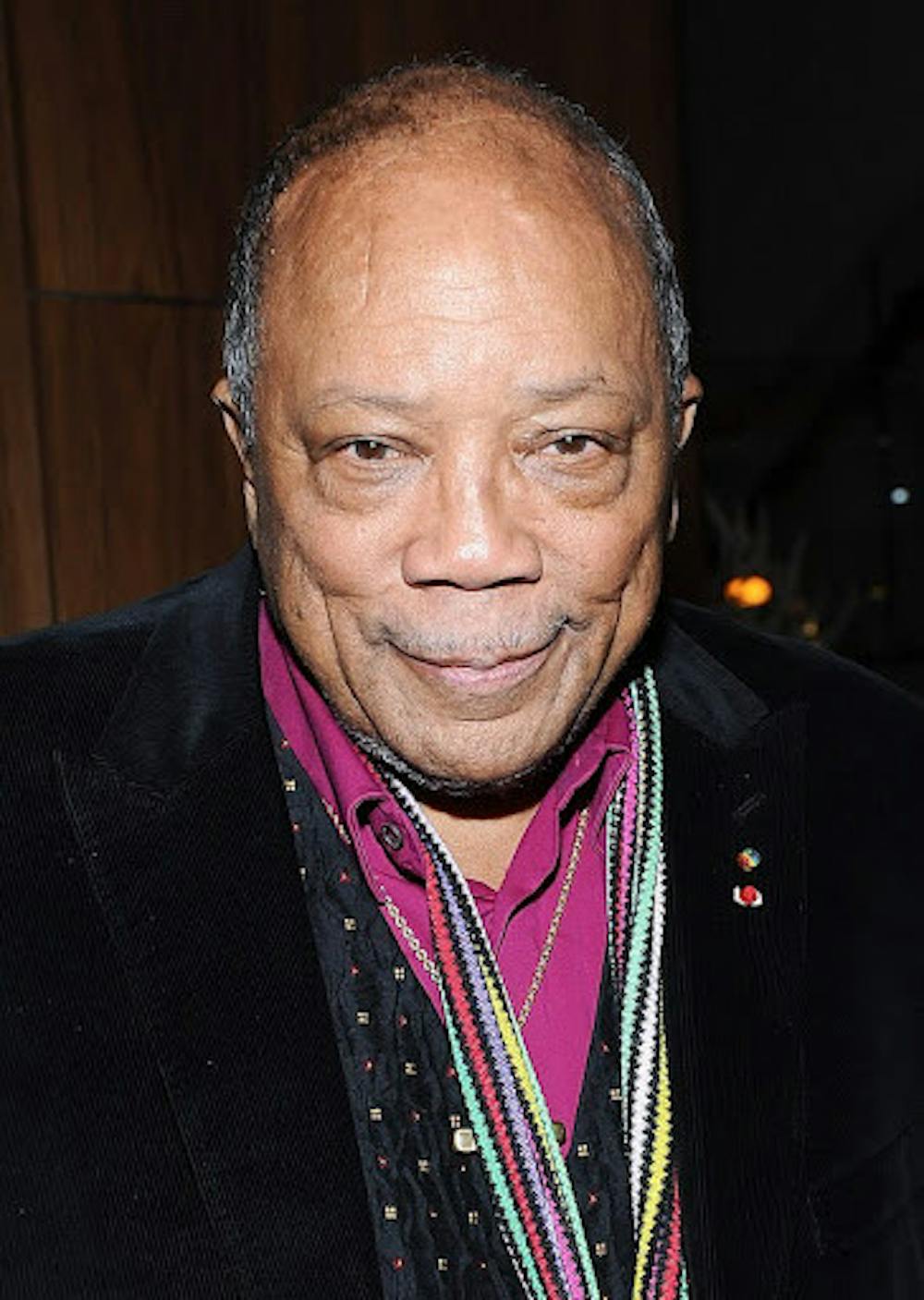By Sky Pinkett
Staff Writer
Grammy-award winning producer and music icon Quincy Jones died on Nov. 3 in his Los Angeles home at the age of 91.
His family broke the news in a statement saying, “Tonight, with full but broken hearts, we must share the news of our father and brother Quincy Jones’ passing. And although this is an incredible loss for our family, we celebrate the great life that he lived and know there will never be another like him.”
The music mogul leaves behind a legacy spanning over 70 years, during which he produced the hits of other music legends such as Michael Jackson, Frank Sinatra, Ray Charles and more.
Born on March 14, 1933, Jones grew up running with gangs on the south side of Chicago. According to Britannica, his mother was institutionalized after suffering a schizophrenic breakdown, and Jones struggled to live in these conditions without his mother until he discovered his love for music through playing the piano.
Despite his attachment to the piano, Jones started out his musical career as a jazz trumpeter. He would play for the band that supported Elvis Presley’s early songs before accepting an opportunity to go on tour with Dizzy Gillespie in 1956. In 1957, he briefly moved to Paris to become the music director at Barclay, a French record company.
It was in Jones’ early days that he would befriend an unknown blind pianist by the name of Ray Charles. The two established a lifelong friendship and professional partnership that produced some of Charles’ most famous songs such as 1961’s “One Mint Julep.”
Jones soon gained an impressive reputation for arranging and composing songs for various 20th century icons such as Count Basie, Sarah Vaughan, Lionel Hampton and Ella Fitzgerald. In 1964, he arranged Frank Sinatra’s album “It Might As Well Be Swing,” which produced Sinatra’s most famous song to date, “Fly Me to the Moon.”
Jones' growing reputation, along with his relentless determination, was what helped him overcome the racial barriers at the time to become vice president at Mercury Records in the early 1960s.
Jones broadened his production capabilities when he crossed over from jazz to pop music. He produced hits and albums such as Lesley Gore’s “You Don’t Own Me” and “It’s My Party,” George Benson’s “Give Me the Night” and Donna Summer’s 1982 self-titled album. Jones proved that his musical prowess crossed over multiple genres as he worked with rappers, R&B singers, pop artists and jazz musicians.
Around this time, Jones began to compose for various movies and TV shows. He produced the theme of “Sanford and Son,” “Roots” and the memorable theme to Will Smith’s “The Fresh Prince of Bel-Air.” His music and production contributions to Stephen Spielberg’s “The Color Purple” helped earn the film 11 Grammy nominations. Jones composed over 35 film scores, including “In the Heat of the Night” and “The Wiz.”
The musical set of “The Wiz” is where Jones first met a young Michael Jackson, who was playing the part of the scarecrow. The two music titans began a collaborative relationship that would produce some of the most record-breaking songs and albums, not just in Jackson’s career, but in music history. These albums included “Off the Wall,” “Thriller” and “Bad.”
In 1985, Jones, along with musician Lionel Richie, gathered a group of mega-artists to record “We Are the World,” a song intended to fundraise relief for those suffering from famine in Ethiopia. Those included in the group were Michael Jackson, Diana Ross, Bruce Springsteen, Cyndi Lauper, Dionne Warwick, Stevie Wonder, Tina Turner, Willie Nelson and more. The song raised over $60 million dollars and won four Grammy awards.
Jones did not start out as an activist in his early years. However, after attending the 1968 funeral of Dr. Martin Luther King Jr. and befriending Rev. Jesse Jackson, Jones’ dedication to philanthropy would grow along with his fame. According to the Associated Press, Jones was quoted as saying, “The best and only useful aspect of fame and celebrity is having a platform to help others.”
Jones stayed true to his words by using his platform to raise awareness and relief for the AIDS/HIV epidemic, promoting education for children, and providing for those living in poverty around the world.
Jones was inducted into the Rock and Roll Hall of Fame in 2013. He is survived by his seven children and three siblings, and leaves behind a legacy so expansive that any lover of American pop culture would be hard-pressed to find at least one of their favorite songs, shows or movies that have been left untouched by the talents and influence of Quincy Jones.







